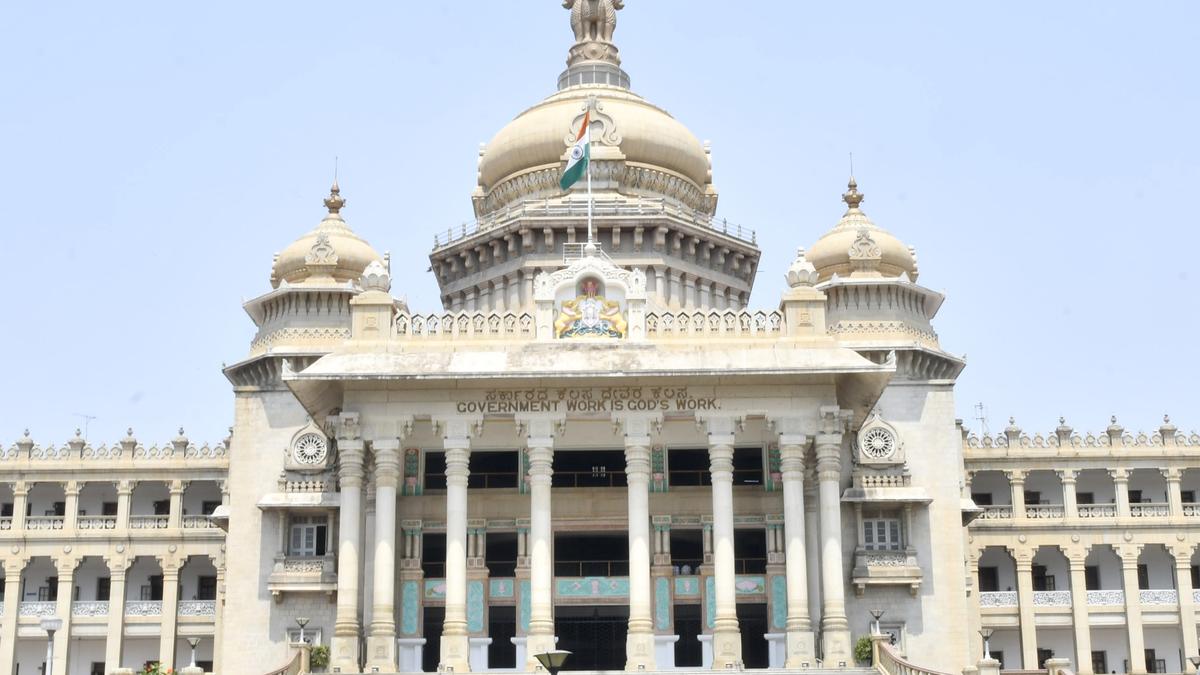
Karnataka mulls over 100% reservation for Kannadigas in C and D group jobs in private industries
The Hindu
In yet another attempt to reserve C and D group jobs in the private sector to locals, the Karnataka government is proposing to bring 100% job reservation for Kannadigas in these categories and 5% reservation for persons with disabilities in private sector industries that have received benefits from the State.
In yet another attempt to reserve C and D group jobs in the private sector to locals, the Karnataka government is proposing to bring 100% job reservation for Kannadigas in these categories and 5% reservation for persons with disabilities in private sector industries that have received benefits from the State.
Labour Minister Santosh Lad held a closed-door meeting with Labour Department officials on Thursday to discuss details of the proposed Karnataka Industrial Employment (Standing Orders) (Amendment) Rules, 2024, that will make the reservation mandatory for the industries. The proposal is expected to be brought before the Cabinet at its next meeting.
“The Sarojini Mahishi report was a policy till now, the changes being brought will make the reservation a law,” Mr. Lad told The Hindu. “The rules will be amended and notified to make reservation mandatory. Cabinet approval is needed to bring in the changes. It is mandatory for all industries employing more than 50 workmen to conform to the changes.” The former Union Minister late Sarojini Mahishi, who headed a commission established in 1984, had submitted the report in 1986 recommending 85% reservation for Kannadigas in employment opportunities. The report is seen as a benchmark.
Amid the voice for 100% job reservation for Kannadigas, the government had in 2019 made changes to the Standing Order rules asking the private sector to provide “priority” to Kannadigas in employment. The notification had, however, desisted from fixing a percentage. The notification in December 2019 was based on the number of industrial accidents. It said that the industrial accident rate among non-Kannadigas was higher than Kannadiga due to the language barrier and had presented the data since 2011 to prove the point.
The Minister confirmed that the domicile requirement, to be treated as a “Kannadiga”, will be maintained at 15 years, which was introduced in the 2019 notification.
The Industrial Employment Standing Order Act, 1946, a Central Act provides powers to States to make rules, incorporating schedules. It provides clarity on service conditions, including dismissal and termination. The State government, in turn, makes the model standing order for clerical and non-clerical staff and industries with more than 50 workmen will have to compulsorily frame their own standing orders in conformity with the model standing order of either the State or Central government.
A senior advocate in the Karnataka High Court who deals with labour issues said that unless the changes are incorporated in the schedule that comes along the Standing Order rules and are gazetted, it cannot pass the scrutiny of law. “Ideally, there should be a separate law making these changes. But these have to conform to the constitutional provisions.”











